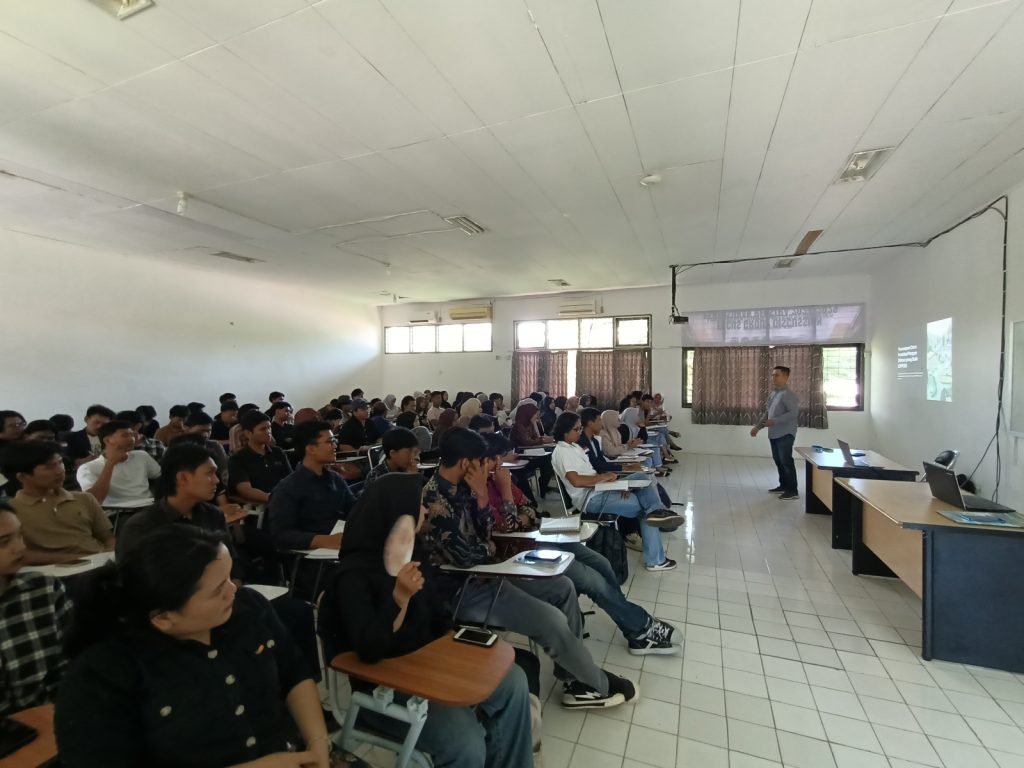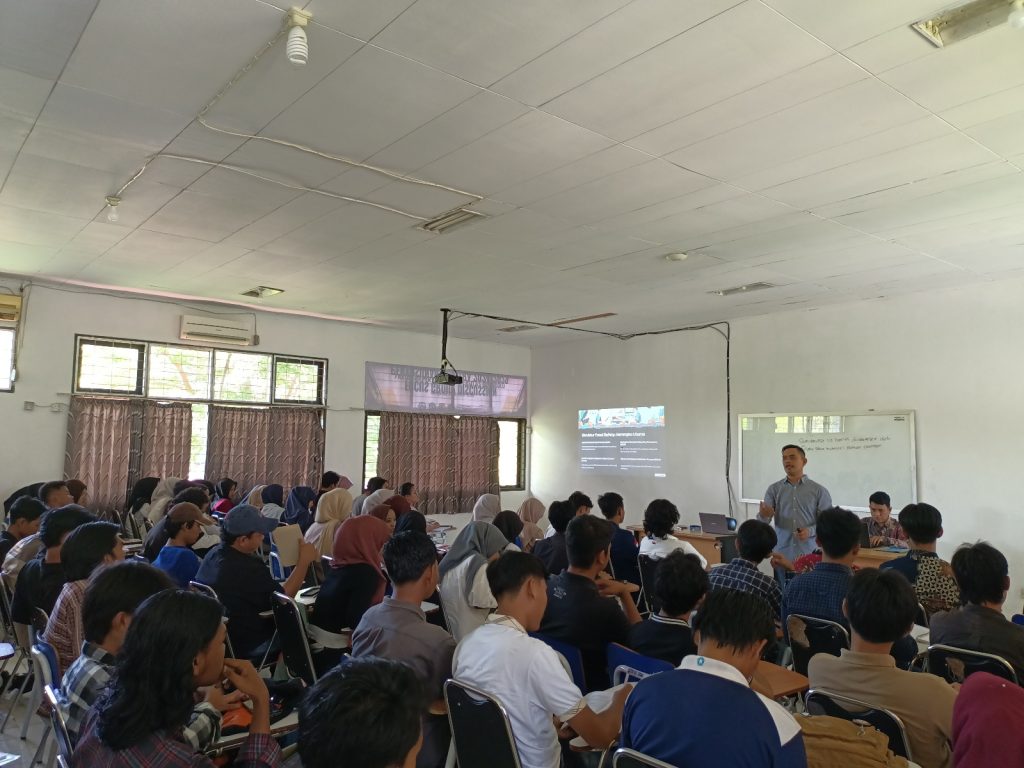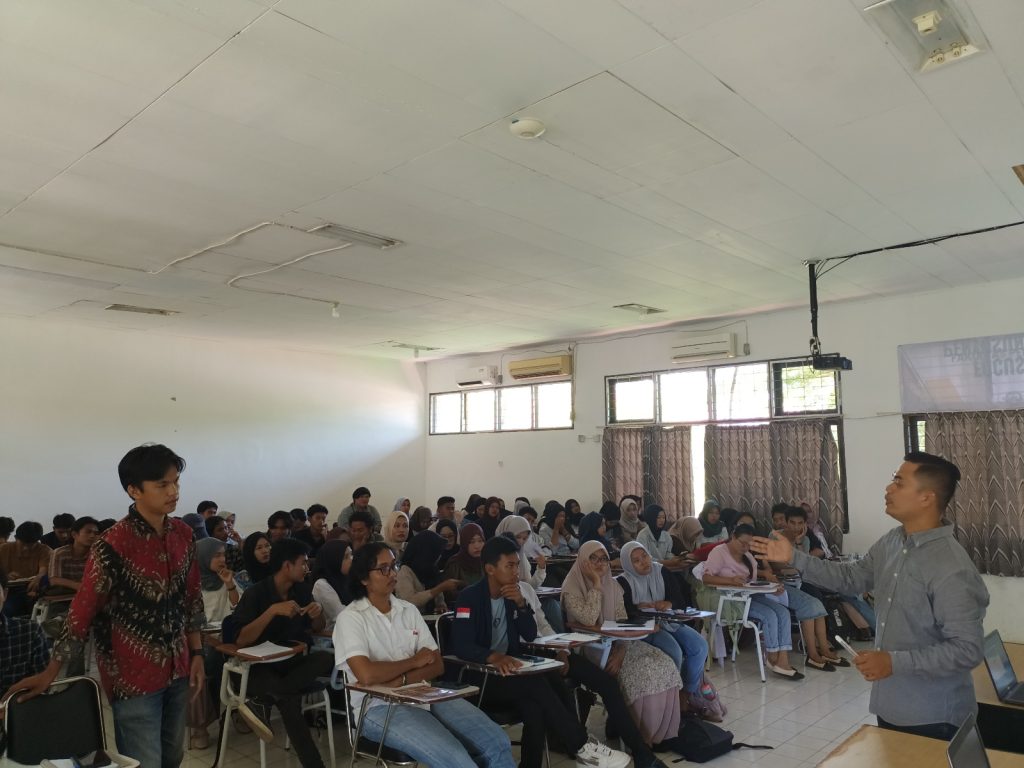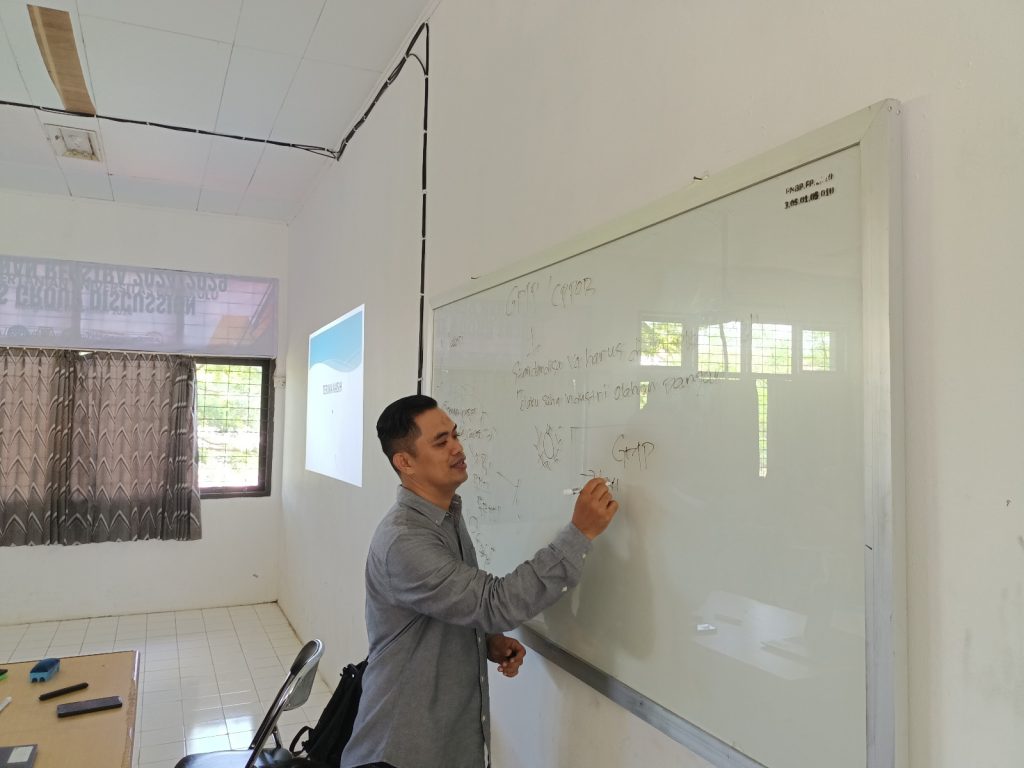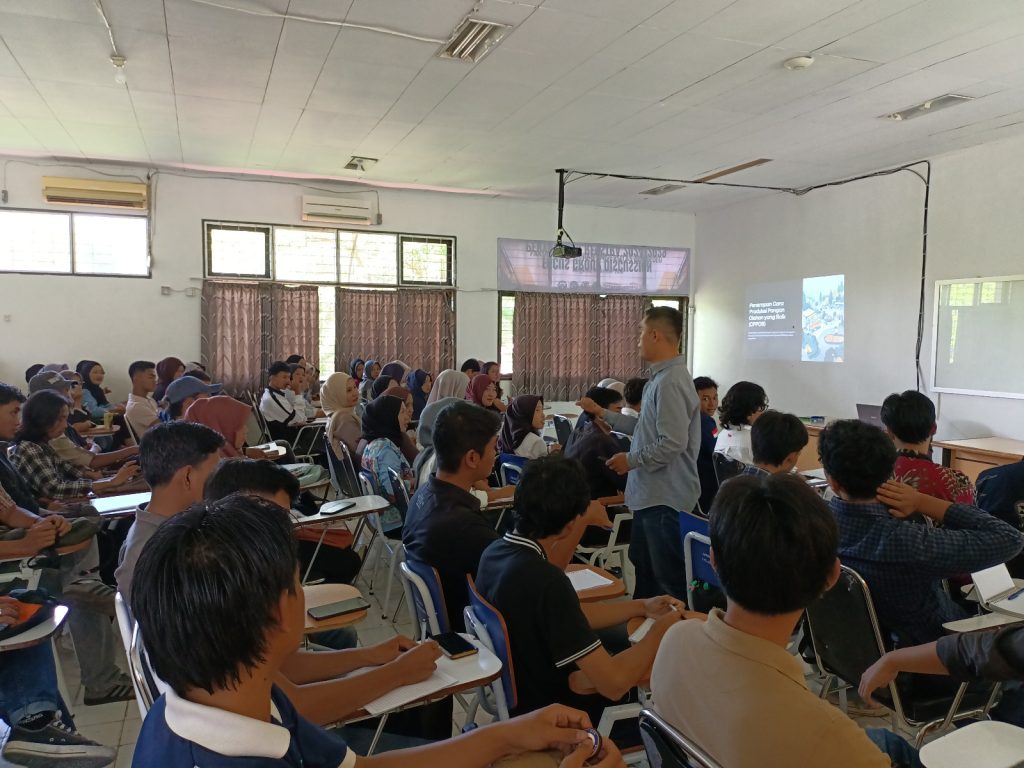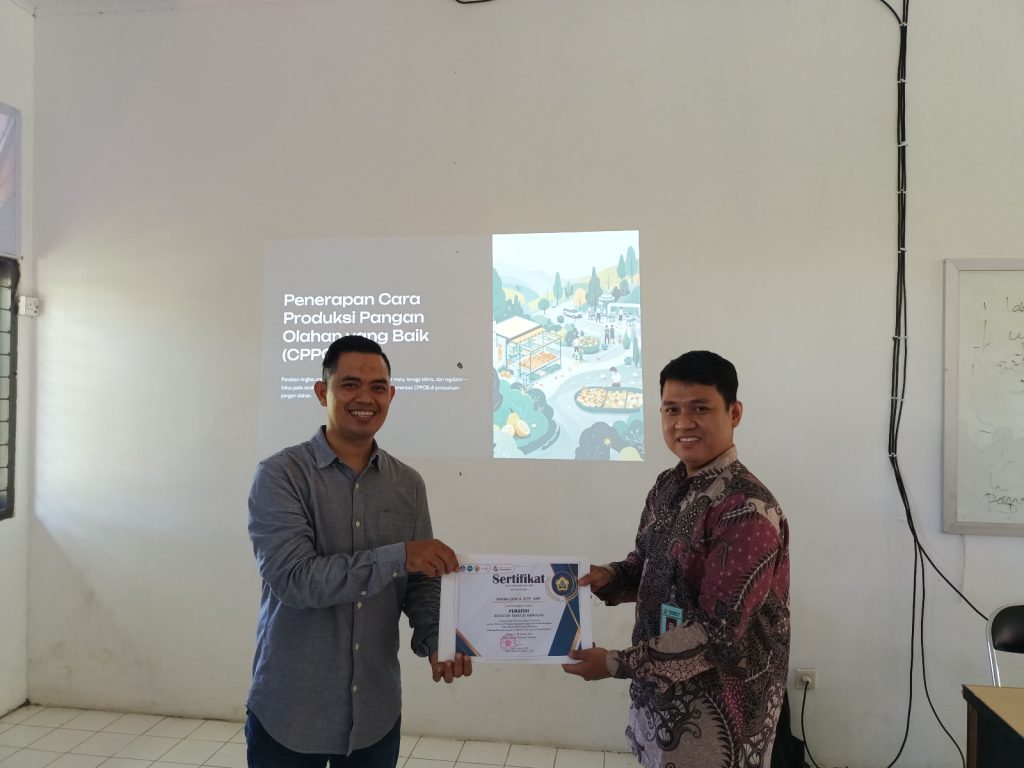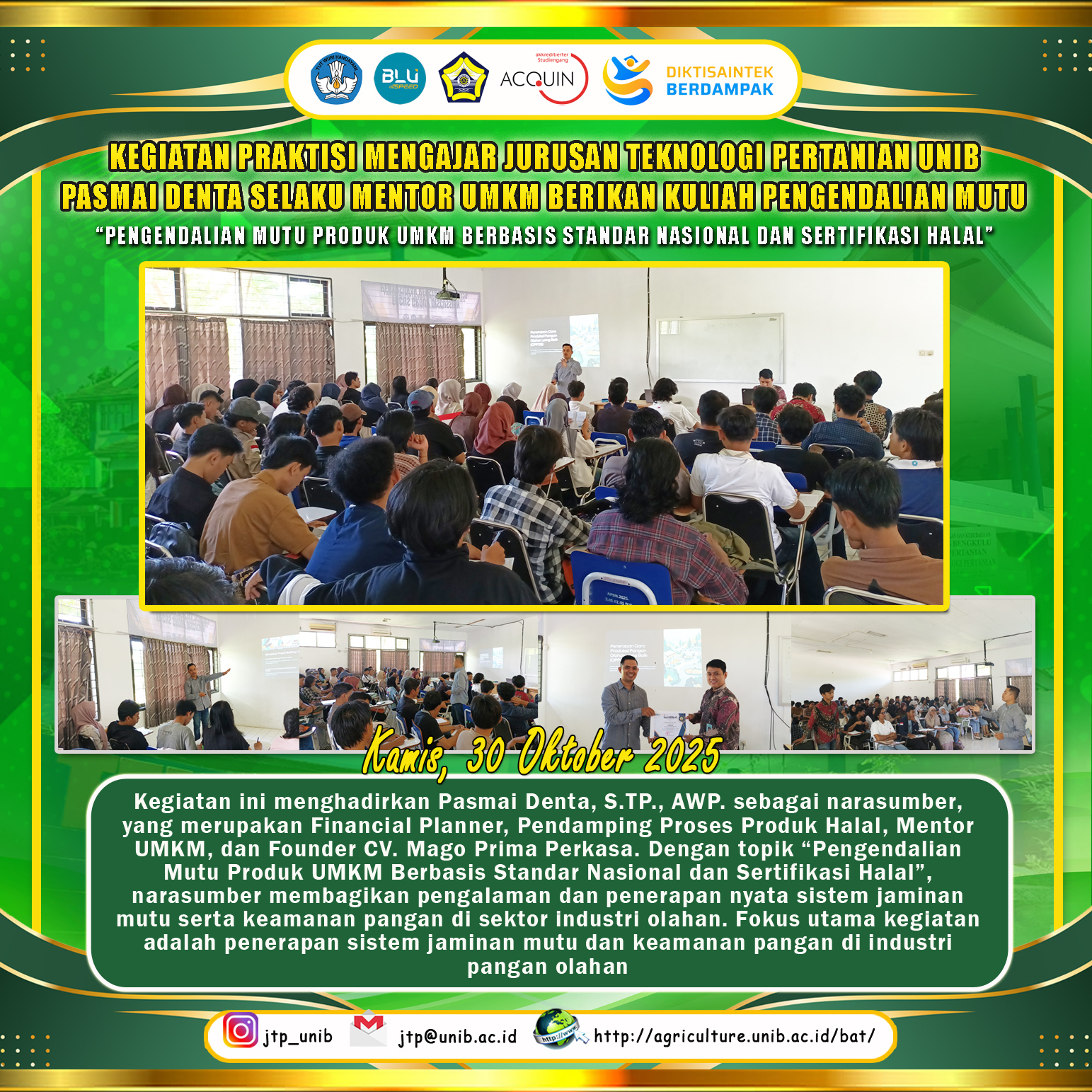
Implementation of Teaching Practitioners in Quality Control Courses, Pasmai Denta Conveys the Implementation of the Quality Assurance System and Halal Certification in the Food Industry
The Agricultural Industrial Technology Study Program, Department of Agricultural Technology, Faculty of Agriculture, University of Bengkulu, carried out Teaching Practitioner activities in the Quality Control course on Thursday, October 30, 2025 at 10.00 WIB at the 23 GB 1 Training Room of the University of Bengkulu.
This activity presented Pasmai Denta, S.TP., AWP. as a resource person, who is a Financial Planner, Halal Product Process Companion, MSME Mentor, and Founder of CV. Mago Prima Perkasa. With the topic “Quality Control of MSME Products Based on National Standards and Halal Certification”, the speakers shared their experiences and the real application of the quality assurance system and food safety in the processed industry sector.
The main focus of the activity is the implementation of quality assurance and food safety systems in the processed food industry, which includes several key systems:
- Good Manufacturing Practices (GMP) as the basis for the implementation of hygiene, facility design, and process supervision.
- Sanitation Standard Operating Procedures (SSOP) as a cleaning and sanitation guide to prevent contamination.
- Hazard Analysis and Critical Control Point (HACCP) for hazard analysis and control of critical points in the production process.
- The Food Safety Management System (SMKP) is a comprehensive integration of various food safety standards that have been implemented in the industry.
In addition, Pasmai Denta also explained the importance of implementing Good Processed Food Production Methods (CPPOB), which aims to protect consumers, ensure compliance with regulations, maintain product quality consistency, and support business sustainability.
In the discussion session, the speakers highlighted the scope of quality control implementation, including facility cleanliness, machine and process control, raw material and product testing, human resource competence, and product documentation and recall systems (traceability).
The material also covers aspects of halal certification, which is now an obligation for micro business actors in accordance with BPJPH and MUI regulations. Pasmai Denta explained that there are two main paths of certification, namely self-declaration and regular path with a companion to the Halal Product Process (PPH). Halal certification is not only a form of compliance, but also provides added value, consumer trust, and competitiveness for MSME products.
This activity is a tangible form of collaboration between the academic world and industry in providing practical insights to students. Through this session, students are expected to be able to understand and apply the concept of quality control according to national standards and prepare themselves to face the challenges of the modern food industry.
